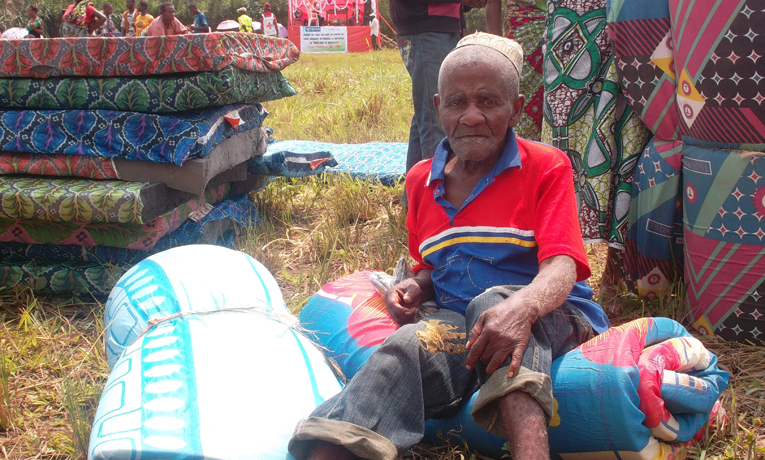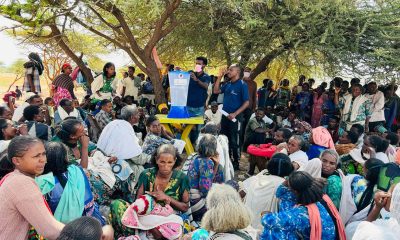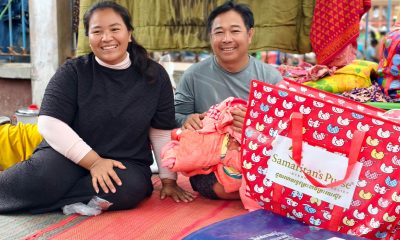After the Mai Mai raided the village of Epulu, Democratic Republic of Congo, last year, the villagers no longer had basic necessities. But a fair hosted by Samaritan's Purse changed their lives.
By Eldred Willey, an intern with Samaritan’s Purse in the Democratic Republic of Congo
The old chief sat in his mud-walled office, wearing round-rimmed spectacles and red women’s shoes. He shuffled damp papers across his desk, shakily marking them with a little seal in a forlorn gesture of authority. He was the most broken-down leader I have ever met.
The chief presided over the once-beautiful village of Epulu at the center of the Okapi Reserve in northeast Congo. Its wildlife enclosure used to draw crowds of tourists with its stunning forested setting and the wide reach of river rapids. That was before the militia group called Mai Mai raided a year ago and destroyed everything.
When Samaritan’s Purse arrived, the village had been drained of its morals. The young women were serving as prostitutes to the passing lorry drivers. The Pygmies who used to collect forest food for the animal enclosure sat helplessly beside overgrown fields, their tools stolen by the raiders. The only wealthy villagers were those who were illegally mining gold or poaching elephants.
Samaritan’s Purse came into this setting with the vision of hosting four fairs – celebrations where people could purchase clothes, bedding, and tools with coupons they were given. The very concept was a picture of salvation: a free gift to buy back what had been stolen. “All you who are thirsty come to the water. Come buy without money” (Isaiah 55:1). The elderly, the crippled, and the blind would take first place in the queue.

Samaritan’s Purse staff distributed $75 worth of coupons to each family. Most of the families used the coupons to buy clothes, mattresses, and cooking pots.
Our spokesman, Jimmy, began explaining the plan to groups of men and women in the village, and he talked freely about the love of Jesus Christ that compelled Samaritan’s Purse to come to the village. The team’s example began to reawaken a compassion for needy neighbors in the villagers, which had fallen into a slumber after the trauma of the Mai Mai attack.
At the fair, once-idle men walked out with hoes and machetes, pausing to thank the Samaritan’s Purse staff. As some people left, they shared household goods with those who had not been able to register. The chief of Epulu came and marshaled his volunteers with a metal staff, which he carried like a symbol of restored authority. He was a transformed man.
Many of the villagers had been sleeping on piles of leaves on a dirt floor. One woman told the team in tears that her family had never slept on mattresses, but she had bought three at the fair and now everyone was sleeping on foam. We heard of several cases of estranged husbands and wives coming together to decide how to spend their coupons and so finding healing for their relationship.
The team itself often ate in a restaurant constructed from Samaritan’s Purse tarps, which had been donated during a previous visit. The owner’s daughter Florence greeted us, but there was always a sad expression in her smile. When the Mai Mai had raided, they dragged her into the bush where she had spent six harrowing months as a slave. Now she was too frightened of men to get into a vehicle and go to the hospital for the treatment she needed.
We slowly built trust over the weeks, and before we left, we invited Florence to the base for an evening meal. She sat relaxed at our table, one woman at the center of a group of animated men. This is just one damaged person who is beginning to find healing through the hope of Jesus Christ.






